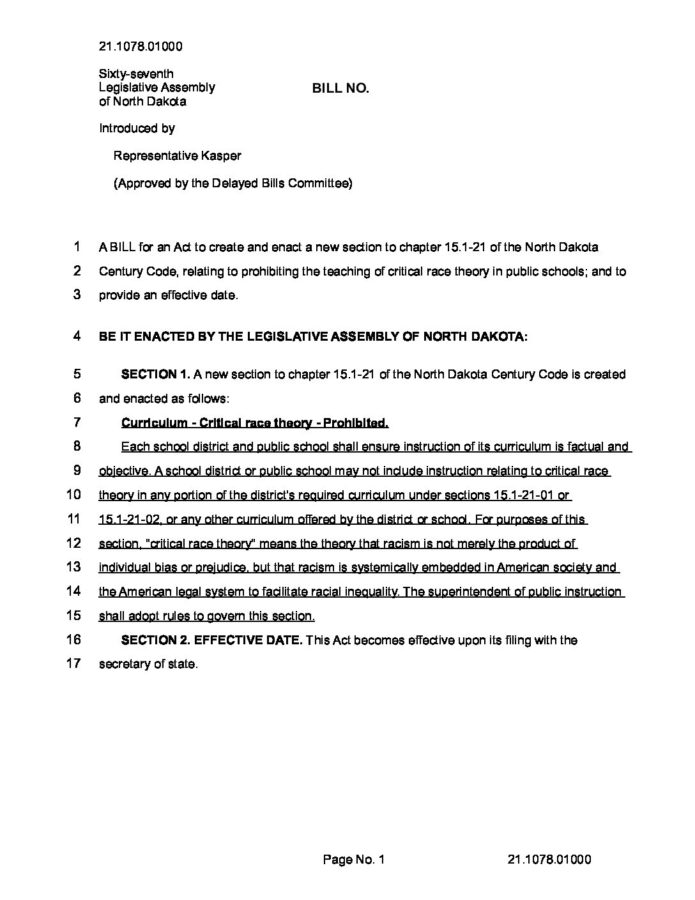New Laws Restricting Critical Race Theory Have Schools Questioning Curriculum
November 29, 2021
A recent bill passed by North Dakota’s legislature, and later signed into law by Gov. Doug Burgum, prohibits educators from teaching critical race theory within the public school system in North Dakota, even though there is no evidence that CRT is taught in any of the state’s K-12 schools.
The bill’s exact language reads, “A school district or public school may not include instruction relating to critical race theory in any portion of the district’s required curriculum … For purposes of this section, ‘critical race theory’ means the theory that racism is not merely the product of learned individual bias or prejudice, but that racism is systemically embedded in American society and the American legal system to facilitate racial inequality.”
This definition differs from what CRT actually is. Legal scholars originally created CRT about 40 years ago for college-level legal debate.
“The core idea is that race is a social construct, and that racism is not merely the product of individual bias or prejudice, but also something embedded in legal systems and policies,” states an article from EdWeek.
Regardless of definition, CRT has been recently pushed into the raging culture wars.
Critics of CRT state that it teaches Caucasian children that they are inherently racist for being white. Those who advocate for CRT say that it illuminates past injustices and helps instill inclusive ideas in children at a young, impressionable age. Some also say that avoiding talking about it is both a part of the problem, and white-washing history.
As Critical Race Theory has been debated exclusively in college legal settings in the past, many ask how the North Dakota legislature can ban it now. With such extreme views of CRT and such differentiating definitions, one must ask how this law is going to be enforced.
How can World History teachers avoid talking about slavery in the legal system, and connecting it to prejudice today? The question many are asking is where we draw the line between the option of guilt or the option of ignorance. What about the curriculum, which doesn’t necessarily contain CRT content as of now, but includes discussion of racism, like what happens when all freshmen in Fargo Public Schools read To Kill A Mockingbird?
As of now, lawmakers seem to depend on public school boards to enforce the new law.



